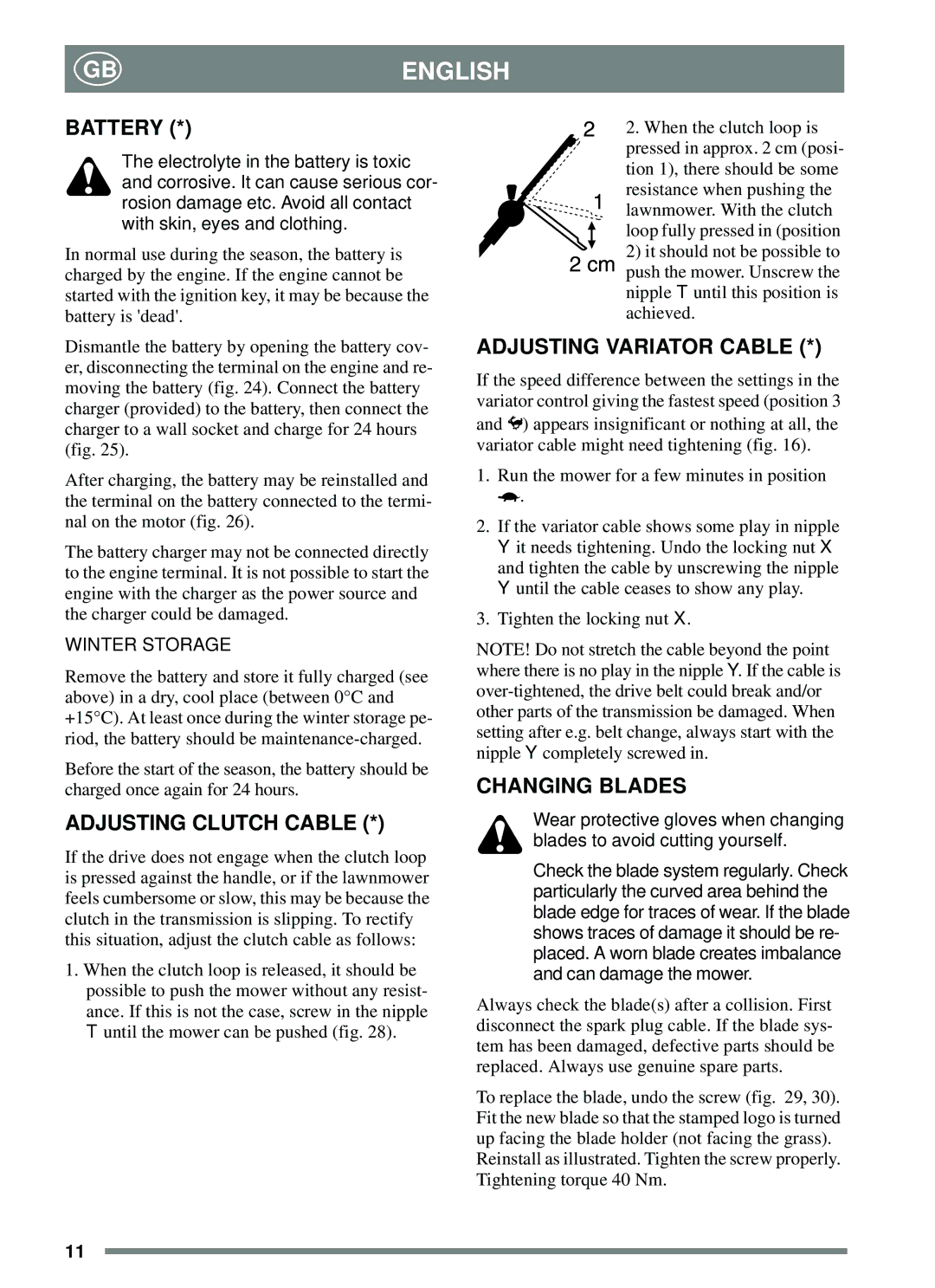55 COMBI, 48 COMBI specifications
The Stiga 48 COMBI and 55 COMBI lawn mowers are the perfect blend of functionality, innovation, and user-friendly design, making them standout choices for homeowners seeking efficient lawn care solutions.The Stiga 48 COMBI is powered by a robust 1,600 W motor, ensuring reliable performance while mowing a lawn up to 1,000 square meters. It features a 48 cm cutting width, allowing for a swift mowing experience, minimizing the time spent on lawn maintenance. The 55 COMBI, on the other hand, escalates the capabilities with its 1,800 W motor and a larger 55 cm cutting width, making it ideal for larger gardens of up to 1,500 square meters. Both models incorporate a cutting height adjustment feature with six different settings, allowing users to choose their preferred grass length, ranging from 22 mm to 80 mm for the 48 COMBI and 25 mm to 80 mm for the 55 COMBI, ensuring optimal control for various lawn conditions.
One of the standout features of both models is the versatility they offer with multiple cutting options. Users can choose between collecting the grass in the rear collector, mulching it, or discharging it to the side, thus accommodating different mowing preferences and lawn care methods. The spacious grass collector, with a capacity of 50 liters for the 48 COMBI and 60 liters for the 55 COMBI, minimizes the need for frequent emptying, allowing for uninterrupted mowing sessions.
The Stiga 48 and 55 COMBI lawn mowers are also designed with an ergonomic approach. Their lightweight construction and well-balanced design, combined with easy-to-manage handle settings, ensure comfortable operation even during extended use. The folding handlebar allows for easy storage while saving space in the garage or shed.
Stiga takes pride in equipping their mowers with durable and high-quality materials, which not only enhance performance but also ensure longevity. The housing of both mowers is constructed from sturdy steel, providing resilience and stability during operations.
In conclusion, the Stiga 48 COMBI and 55 COMBI lawn mowers stand as exceptional choices for efficient lawn maintenance, integrating powerful motors, versatile cutting options, and user-centric designs. Whether tackling small residential lawns or sprawling gardens, these models deliver performance, reliability, and ease of use that gardeners can trust.

